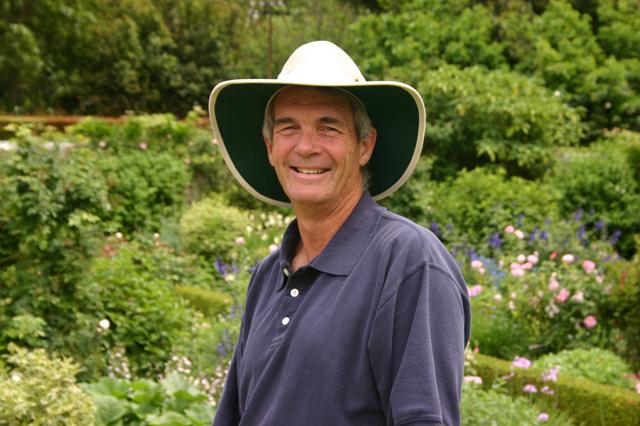Ever wonder why all the yards in a neighborhood feature the same forsythia or Bradford pear? How did every grandmother end up with the same grape-bubblegum-smelling iris and pink peony? From academia all the way to retail garden centers, the plant industry plays a major role in which plants are available to the public for home and commercial landscapes. Consumers, who tend to make decisions based on what looks pretty, are often at the mercy of marketing.
Conversely, there’s been a steady effort to get native plants into the landscape. In the early ’80s, Tennessee Valley Authority biologist Bob Farmer was growing natives to industry standards, but the commercial market was limited. He chose to donate plants to public places in hopes of attracting interest. In 1984, TVA received a $7,000 grant for a plant-utilization conference — the forerunner of today’s Cullowhee Native Plant Conference at Western Carolina University (see box).
Raising native plants commercially isn’t as easy as it seems. Industry leaders must determine the best ways to propagate, grow and breed species that will reproduce consistently and perform well in the landscape; this requires considerable research and sharing of essential information. This year’s conference will provide an arena for sharing knowledge both within the industry and among friends.
The annual event now draws more than 300 people, but the goals remain the same: presenting workshops and lectures on propagating native species and on the ecology of native plant communities, both in landscaping and in ecological restoration.
Year after year, the enthusiasm for the conference is staggering, reports Bobby Hensley, WCU’s associate director of continuing education. Apparently, it’s an idea that has found the common ground between consumers and the industry: Both want to see more use of native species in commercial and residential landscaping. The list of participants includes landscape architects, commercial nursery operators and garden club members, as well as botanists and horticulturists from state highway departments, universities, native-plant societies, botanical gardens and arboretums.
Topics include using native plants in residential landscape design, the ethics of digging native plants, noninvasive native vines, conservation horticulture for the backyard gardener, and ethnobotany of the Cherokee. New this year is the “Home Gardening Miniconference,” a Saturday-morning workshop featuring Allan Armitage of the University of Georgia. He’s written many books, including the widely popular Armitage’s Garden Perennials.
Each year, the conference presents the Tom Dodd Jr. Award to a person or organization active in the North American native plant movement. The recipient must have made a significant contribution in one of several areas: conservation of native flora in situ, promoting the understanding of native flora, building expertise in the propagation and cultivation of native plants and using native plants in diverse natural and designed landscapes. Past recipients include Lady Bird Johnson, The Nature Conservancy and Western North Carolina’s own Richard Bir, an extension specialist whose work focused on the use of natives in the region’s nursery industry.
Preservation is a natural byproduct of increasing public awareness of native plants, and the people who present and support the Cullowhee conference each year are making a significant contribution to preserving one of our region’s most valuable assets: its plants.
— Cinthia Milner gardens in Leicester.






Before you comment
The comments section is here to provide a platform for civil dialogue on the issues we face together as a local community. Xpress is committed to offering this platform for all voices, but when the tone of the discussion gets nasty or strays off topic, we believe many people choose not to participate. Xpress editors are determined to moderate comments to ensure a constructive interchange is maintained. All comments judged not to be in keeping with the spirit of civil discourse will be removed and repeat violators will be banned. See here for our terms of service. Thank you for being part of this effort to promote respectful discussion.